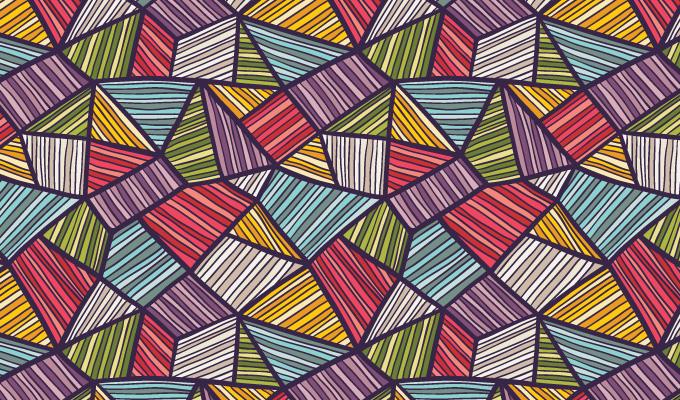
Get the latest articles delivered directly to your inbox!
Our Contributors
Class of 2022
Kyle Duke
Austin Foster
Charlotte Leblang
Ross Lordo
Class of 2021
Dory Askins
Connor Brunson
Keiko Cooley
Mason Jackson
Class of 2020
Megan Angermayer
Carrie Bailes
Leanne Brechtel
Hope Conrad
Alexis del Vecchio
Brantley Dick
Scott Farley
Irina Geiculescu
Alex Hartman
Zegilor Laney
Julia Moss
Josh Schammel
Raychel Simpson
Teodora Stoikov
Anna Tarasidis
Class of 2019
Michael Alexander
Caitlin Li
Ben Snyder
Class of 2018
Alyssa Adkins
Tee Griscom
Stephen Hudson
Eleasa Hulon
Hannah Kline
Andrew Lee
Noah Smith
Crystal Sosa
Jeremiah White
Jessica Williams
Class of 2017
Carly Atwood
Laura Cook
Ben DeMarco
Rachel Nelson
Megan Epperson
Rachel Heidt
Tori Seigler
Class of 2016
Shea Ray
Matt Eisenstat
Eric Fulmer
Geevan George
Maglin Halsey
Jennifer Reinovsky
Kyle Townsend
Join USCSOMG students on their journeys to becoming exceptional physician leaders.

The Language of Medicine
While in college, I spent three semesters enrolled in basic Spanish language classes. I’ll admit that I was primarily completing minimum language course requirements set by my university, but I was also excited to develop a new set of skills that could help me interact with more people. Starting with no background at all in the language, I was feeling pretty good about myself three semesters later. I was usually able to hold conversations with my classmates, and I considered myself reasonably proficient in reading and writing in Spanish. I definitely wasn’t bilingual, but I thought I was pretty competent in the language.
The following summer, while looking for housing in New York City, I heard about an opportunity to live with a roommate who was bilingual. Confidently, I made plans to live there, thinking it would be a great opportunity to solidify my skills. To my surprise, though, I arrived to discover that my roommate was in fact a native Spanish speaker who didn’t know a bit of English. I quickly realized that my level of “competency” in no way prepared me to communicate with this woman who spoke her rolled R’s at lightning speed and hardly seemed to pause between sentences. I was completely out of my league! Sometimes I could understand brief phrases or general concepts, but there was a lot that I didn’t understand. Not to mention, I definitely wasn’t prepared to speak back to her in her native language. By the time my brain had sluggishly processed a vague translation of one sentence, she had already spoken two more paragraphs and I was left scratching my head as I pondered a response. It was all I could do to understand her, and my ability to speak the language in response would have required an entirely different echelon of “fluency.”
Sometimes this is how I feel as a first-year medical student. In one year, we’ve gotten a crash course in a whole new language of medicine, complete with extensive vocabulary, odd pronunciation, and slang abbreviations. Our goal is to be fluent in this new language; for now, if we’re lucky, we may be able to pass as competent. This has been especially true in our latest module, neuroscience, where it seems like every structure and pathway has a name straight out of science fiction. Having no prior exposure to this type of vocabulary, I have found myself regressing to the kindergarten method of sounding out my words as I try to spell them in my notes. Whether I’m studying the ventroposterolateral nucleus of the thalamus or the fasciculus cuneatus of the dorsal column, it’s easy to feel like I’m a two year old again who is just learning to speak. Fortunately, like a two year old, my medical vocabulary is also rapidly advancing. Occasionally, it advances so fast that I seem to forget words I learned as a two year old. So, forgive me if I can remember homonymous hemianopsia (loss of visual field in half of each eye) and prosopagnosia (can’t recognize faces), but I can’t seem to remember the name for the breakfast food that you pour in a bowl and eat with milk. My hippocampus is working hard to keep up with all the new words and concepts I’m learning.
There are moments, too, when I’m shadowing a physician who assumes that as a medical student I must be more fluent in the language of medicine than I actually am. Those moments feel eerily similar to the times when I tried to understand my Spanish-speaking roommate. I am proud of myself for understanding the big picture issues that a physician is discussing, but sometimes it takes a little time for me to summon the right words when responding to their pimping questions. Like any language, learning the language of medicine takes time and practice.
From a medical student’s perspective, philosopher Ludwig Wittgenstein may have had it right, stating that, “the limits of my language are the limits of my world.” As I grow my medical vocabulary, so do I find that the world of medicine becomes more and more amazing. Personally, I think that’s pretty awesome.

Rachel Nelson
I’m originally from Brentwood, Tennessee, and I came to South Carolina to attend college at Furman University where I was a music major, outdoor enthusiast and lover of life. I never expected to spend four more years here in Greenville, but I could not be more excited to have the opportunity to stay and be a part of this incredible program at the USC School of Medicine in Greenville! I hope that through this blog you will be able to see, as I did, a glimpse of the inspiring vision and stunning reality of this medical school, and that you will share in our innovative and hands-on journey to becoming tomorrow’s doctors.
Copyright 2021 USC School of Medicine Greenville

